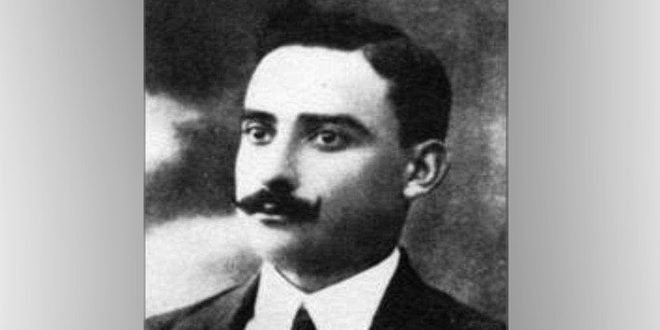Damascus, SANA- A poem composed by the late poet, Rafiq Rizk Salloum, in front of the gallows of the martyrs of May 6, is still crying out for living consciences, agitating and urging resistance, as if this poem written before more than 100 years ago is suitable for our time and it speaks in our tongue
To document the biography of that resistant and poet, the Damascus History Foundation prepared a study for the Wikipedia website to be published on its page, based on the agreement signed between the two parties last June, that asked the foundation to provide the website with biographies of 100 documented and verified Syrian personalities.
The poet was born in the city of Homs in 1891 and taught in its schools, and while his family was hoping to become a cleric, he took off the dress of monasticism early and went to Beirut to study at the Syrian Protestant College, the American University in Beirut and wrote while he was still a student, his first novel, Diseases of the Modern Age.
After he finished his studies in Beirut, he traveled to Istanbul to study law, and there he wrote to the major Arab newspapers and magazines.
And when he finished studying law, he had mastered the Russian, Greek and Turkish languages.
Salloum had a fondness and hobby in music, so he mastered playing the instruments of zither, the lute, the violin and the piano. He was also one of the most important contributors to the establishment of the Literary Club, which aimed at the coalition of Arabs and the preservation of their rights and the independence of their country.
In 1914, the Ottoman occupation authorities brought Sallum to service with their forces participating in the First World War, and there he was able to communicate and coordinate with the groups opposed to this occupation.
In 1915, Salloum was arrested after they informed the Ottoman authorities about his activities against the Ottoman occupation, and he was transformed to the Military Court in Aley, where he was sentenced to death by hanging.
On the morning of May 6, Sallum was executed while he was still a young man of twenty-five years old, and he had a number of free men with him.
In the will that Salloum left, an extreme evidence of his feelings and his sense of belonging to the homeland and the nation, as he recommended that verses from the famous poem of the poet Almuqanna’ Alkindi to be written on his grave “The one who had between me and the sons of my father” to express his belief in Syria, his Arabism and his defense of his fellow countrymen even those who betrayed him and handed him over to death.
Nisreen Othman/Mazen Eyon
 Syrian Arab News Agency S A N A
Syrian Arab News Agency S A N A

